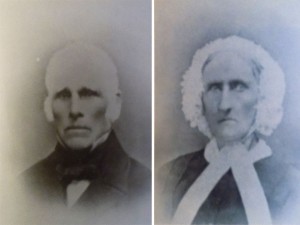Trump opponents consider Canada, but will they follow through?

Canada’s immigration site crashed on election night. Image: Government of Canada
Donald Trump’s election win is raising a lot of uncertainty. The President-elect’s administration is not fully assembled yet and doesn’t take office until January 20, leaving a lot unknown about decisions that will be made and just how much of Trump’s controversial remarks and ideas will transfer to reality. But the Trump win has led to a spike in the number of Americans considering leaving the United States and emigrating to Canada. On election night, the website of the Canadian immigration department crashed due to high traffic when it became apparent Trump was winning.
Immigration lawyers in Ottawa have been getting more telephone calls and emails from anti-Trump Americans lately. They’ve also been giving more media interviews in two weeks than many of them ever thought they would give in an entire career.
Julie Taub is one of those lawyers. She said about 20 Americans have contacted her asking about emigrating. Some have wanted to seek refugee status in Canada, which she plainly said is “complete nonsense.” She said conditions in the United States do not warrant Canada accepting refugees from there. “You have to immigrate,” said Taub, adding most of the inquiries for legitimate immigration were from educated professionals or families where one spouse is American and the other Canadian. In situations like those, the Canadian spouse can sponsor the American spouse.
Betsy Kane, another Ottawa immigration lawyer has been getting fewer calls, but said they are of the same nature as the ones Julie Taub was getting—professionals, families, and spouses wanting to sponsor each other.
Both lawyers also caution that relocating to Canada is not a fast process and there are numerous laws and facts of Canadian life that should be considered. “We’re more socialist” Taub said of Canada, referring to things like government health insurance and pensions. She added that taxes and the overall cost of living are higher in Canada. Taub also commented that Canada is more “politically correct.” The federal government and the provinces have quasi-judicial human rights commissions that citizens can take a case to if they feel their civil rights have not been respected.
Betsy Kane was recently a guest on the Canadian Immigration Podcast and covered a series of issues for American professionals, academics, and students considering relocation to Canada following the Trump victory.

The author’s great-great-great grandparents, Col. Robert Land II (1772-1867), and wife, Hannah Horning (1777-1878). They were Loyalists from Pennsylvania who settled in Upper Canada. Photo: James Morgan, from Brown, Dorothy I, A Loyalist’s Legacy: The Family of Robert Land. Mississauga, ON, 1985.
If such a phenomenon materializes, Trump resisters would be the fourth wave of Americans moving north of the border for political reasons that Canada has seen in 240 years.
The first wave was of Loyalists during and after the Revolutionary War. They didn’t want to be Americans at all and stayed loyal to King George III. They quite liked being British and any positions of privilege they held because of it. They resettled in Upper Canada (Ontario), Lower Canada (Quebec), and throughout the Canadian Maritime colonies in the late 1700s.
In 1833 the British government abolished slavery. Between then and when President Abraham Lincoln signed the Emancipation Proclamation in 1863, thousands of African Americans made the dangerous trip on the figurative Underground Railroad to Canada where they would be safe and free.
During the 1960s and 1970s, thousands of American men relocated to Canada to avoid being drafted for military service in Vietnam. It remains to be seen though if the Trump administration will provoke significant numbers of Americans to relocate to Canada. That will depend on whatever happens in Washington.







